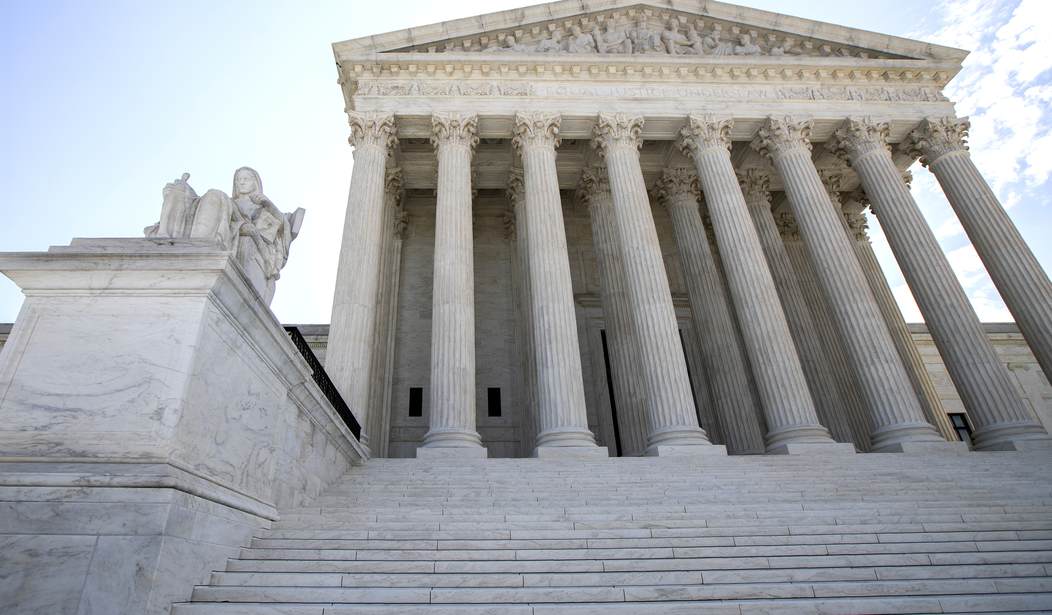Justice Ruth Bader Ginsburg was proudly the first Jewish woman to serve on the United States Supreme Court. She was iconic, trailblazing, and revered. Her death is a tragedy and her legacy should be honored. The president quickly expressed his condolences and indicated that he would nominate a new female replacement. Seeing this contentious process to fruition won’t be easy or without pitfalls, but it is possible. Here’s what the loss of Ruth Bader Ginsburg and the nomination of a new justice will look like.
With roughly 40 days until the election, there's a major time crunch for the nomination and confirmation of a new justice. A math-filled tweet from political journalist Lisa Desjardins correctly indicates that time is not on President Trump’s side. “The fastest Supreme Court nomination in the last 30 years took 42 days. The average confirmation since 1975 takes 67 days.” Even the smallest delay could be extremely critical. However, Senate Majority Leader Mitch McConnell is squarely on the side of the president and will be an expedient usher of the process.
The problems of the process are not simply a matter of time, but also a matter of partisan politics. Democrats are still bruised by the Republicans’ treatment of Merrick Garland. The Senate refused to vote on lame duck President Obama’s election-year Scalia replacement under the guise of waiting for the election. However, Republicans controlled the Senate, Democrat Obama had no leg to stand on, and Garland stood no chance. Additionally, the Appointments Clause of the Constitution empowers the president to nominate, with the confirmation (advice and consent) of the Senate, to appoint Supreme Court Justices. Thus, the Constitution is on the Republicans’ side and it could easily be argued that a nomination and confirmation is a constitutional obligation.
Recommended
Putting the Constitution aside, how is this going to shake out in the Senate? Senate Republicans control 53 seats and could afford three defections and Vice President Pence could break a 50-50 tie. For Senate candidates in fiercely competitive races in places like Arizona, Maine, Colorado, and Alabama this means a last-minute change in strategy will be needed to bring home a victory. The strategy hinges on these questions: vote or wait? Yay or nay? These calls are crucial.
These decisions are also vastly important for moderates on both sides of the aisle or for those who don’t always vote with their party. For anti-Trump Mitt Romney, a vote against a conservative justice would greatly upset religious constituents in his home state of Utah. Yet, Alaska Republican-ish and pro-choice Lisa Murkowski already said she would not vote prior to the November election. This is smart, given the justice will likely have a pro-life take or be more conservative. There’s also a great possibility that moderate Democrat Sen. Joe Manchin of West Virginia, who voted for Kavanaugh in 2018, would vote with Republicans.
This SCOTUS appointment is massively important for Democrats, Republicans, and the future of our country. Trump already appointed two conservative justices, Gorsuch and Kavanaugh. Getting a third would mean Trump’s choices, upon confirmation, could control 1/3 of the court, which is significant. It would also, technically bring the ideological vote to 6-3 in favor of conservatives. It’s worth mentioning that Chief Justice Roberts was a George W. Bush appointee, but he hasn’t been a shining star for conservative decisions. Either way, the left only has Sotomayor, Kagan and Breyer. It’s worth mentioning that Breyer is 82 years old and a second Trump term could easily mean turning 6-3 into 7-2.
This terrifies Democrats. So, their solution is to “pack the court” which means adding liberal justices. The legal theory for this would be that there is no constitutional obligation to have only nine justices. It is simply a 100-year tradition. They want to place a litany of liberal activists on the court. Yes, we speak of a conservative and liberal court. However, the Supreme Court is not supposed to be partisan: the court is supposed to be apolitical. Part of RBG’s popularity stems from her democratic activism. Such behavior doesn’t squarely fit within the idea of separation of powers.
The other power problem is that Democrats don’t yet have the power to do anything of which they speak. They are grasping at paper straws. To pack the court, they need to legislate. To legislate they will need both houses. They also think that waiting until November means waiting for Biden. Anyone who thinks that is a guarantee should really watch some news clips from November 2016 and pray that Biden can get through a debate.
Democrats, or at least social media liberal activists, keep threatening to riot if Trump nominates a justice. The problem with continued riots is that rioting doesn’t poll well. Rioting scares suburban voters and a scared suburban voter is a vote for Donald Trump.
Erin M. Elmore is an attorney, political strategist, on-air correspondent, and the Executive Director of USA Strong, a grassroots organization focused on rebuilding American greatness. Her commentary has been featured on Fox News, Fox Business, Fox Nation, CNN, MSNBC, Yahoo News, Daily Mail, and The New York Post, among others. Follow her on Twitter and Instagram.























Join the conversation as a VIP Member